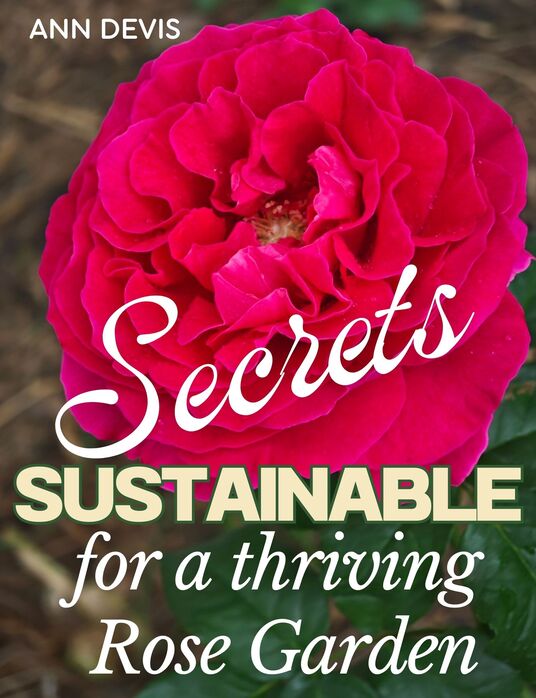Maintaining a beautiful rose garden isn’t just about carefully selecting the perfect roses and tending to them. It’s also about fostering a balanced ecosystem that helps your roses thrive. One crucial aspect of this balance is the presence of beneficial insects. These tiny garden helpers can naturally protect your roses from pests, ensuring they bloom magnificently. We are used to thinking bees and butterflies are helpful for the garden as plant pollinators. But in addition to these undoubtedly beneficial insects, our other insect allies can live in our gardens.
The Hidden Heroes: Parasitic Wasps
One summer, I noticed a surge in the caterpillar population nibbling on my rose leaves. Before I knew it, tiny parasitic wasps had come to the rescue. Though small and often unnoticed, these wasps are vital in controlling pest populations.
What Are Parasitic Wasps?
Parasitic wasps, often mistaken for common wasps, are a diverse group of insects that lay their eggs inside or on other insects. Their larvae then feed on the host, eventually killing it. This process makes them invaluable in managing pests like caterpillars and beetle larvae that can wreak havoc on a rose garden.

Attracting Parasitic Wasps
I planted herbs such as dill, fennel, and cilantro to encourage these beneficial insects, providing nectar and pollen. These plants add beauty and fragrance to the garden and serve as food sources for adult parasitic wasps.
Flies with a Purpose: Tachinid Flies and Hoverflies
Flies often get a bad rap, but not all are the bothersome creatures we swat away. Tachinid flies, and hoverflies are among the unsung heroes of the rose garden.
Tachinid Flies
Tachinid flies lay their eggs on caterpillars and other insect larvae. Once the eggs hatch, the larvae burrow into their hosts, eventually killing them. This parasitic relationship helps keep the population of harmful insects in check.
Hoverflies
Hoverflies mimic bees and wasps with their distinctive black and yellow stripes. Their larvae are voracious predators of aphids, a standard rose pest. A single hoverfly larva can consume hundreds of aphids in its lifetime.
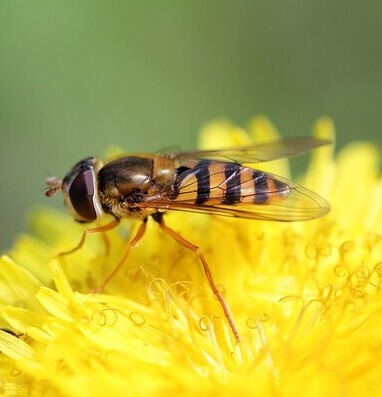
Garden tips
To attract these beneficial flies, I planted flowers with accessible nectar, such as marigolds and sunflowers. These flowers brighten the garden and provide the nourishment that tachinid flies and hoverflies need.
Lacewings: The Aphid Assassins
Green lacewings have always fascinated me with their delicate, ethereal appearance. Their beauty belies their predatory nature, making them formidable allies in the garden.
Lacewing larvae, often called “aphid lions,” are aggressive predators that feed on aphids, mites, and other small insects. An adult lacewing can lay up to 200 eggs, each of which will hatch into a larva hungry for pests.

Nurturing Lacewings
To foster a lacewing-friendly environment, I avoided using chemical pesticides and instead opted for organic methods. I also sheltered them by planting various shrubs and perennials, creating a haven for these delicate insects.
Beetles: The Ground Troops
Ladybugs, ground beetles, and soldier beetles are the ground troops of the rose garden, tirelessly patrolling and defending against pests.
Ladybugs: The Iconic Beneficial Insect
Ladybugs are the most well-known beneficial insects. Both adult and larval ladybugs feed on aphids, scale insects, and mites. Their voracious appetite for pests makes them indispensable in any garden.

Ground Beetles and Soldier Beetles
Ground beetles and soldier beetles are nocturnal hunters. They prey on a variety of insects, including caterpillars, slugs, and root maggots. Their presence in the garden ensures that pest populations are kept under control.
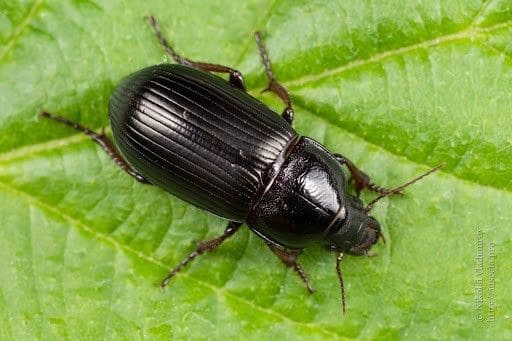
Garden tips
I created habitats with plenty of ground cover and mulch to attract beetles. These environments provide the moisture and shelter beetles need to thrive.
The Dynamic Duo: Bees and Butterflies
A rose garden is only complete with the gentle buzz of bees and the fluttering wings of butterflies. These pollinators play a crucial role in the garden’s health.
Butterflies: The Daytime Pollinators
Butterflies, with their vibrant colors, add an element of enchantment to the garden. Species like the painted lady and the monarch are excellent pollinators, contributing to the health and diversity of the garden ecosystem.
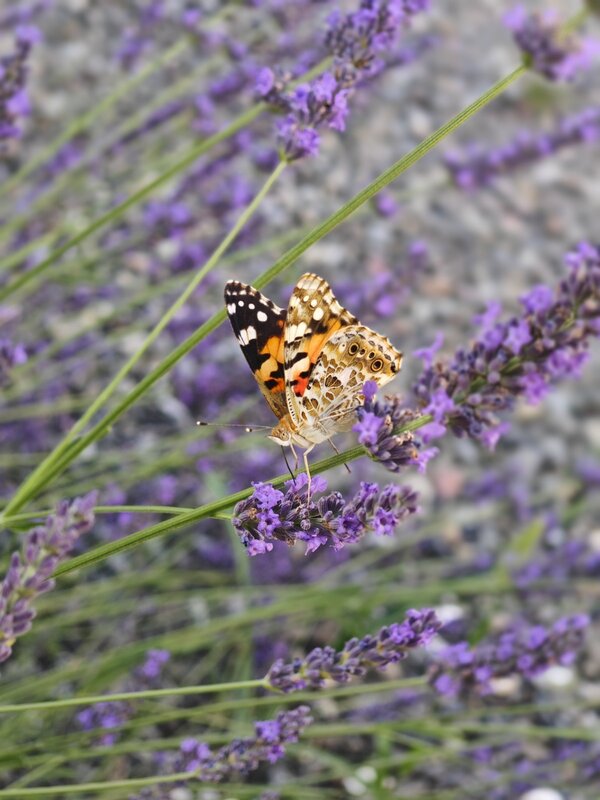
Bees: The Master Pollinators
Bees, including honeybees and bumblebees, are essential for pollinating roses and other garden plants. Their activity enhances the garden’s beauty and improves the yield of fruit and seed-producing plants.
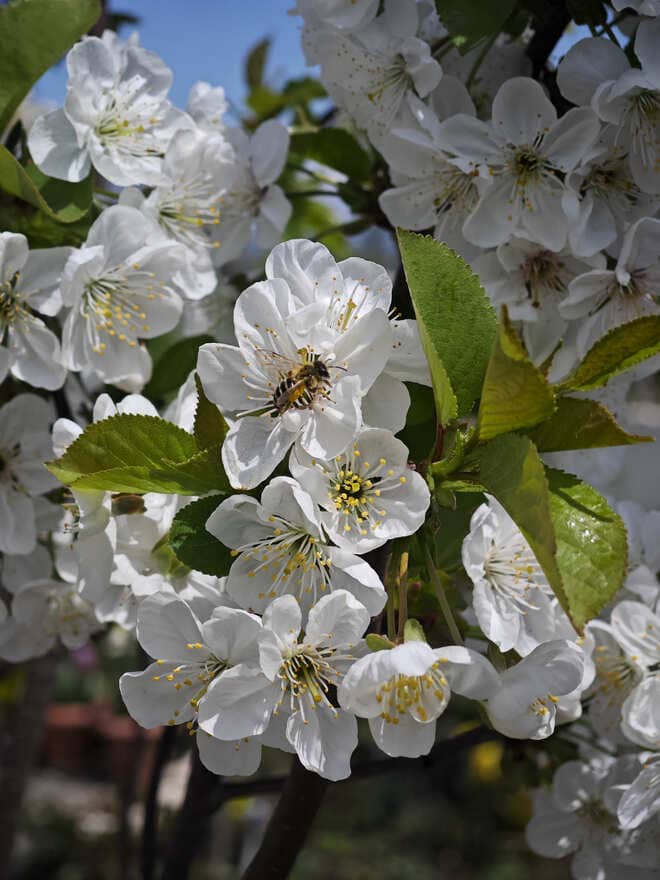
Garden tips
To attract bees and butterflies, I planted various flowering plants that bloom throughout the growing season. Lavender, echinacea, and zinnias are among their favorites. Providing a shallow water source and avoiding the use of pesticides also helps create a pollinator-friendly garden.
Dragonflies: The Aerial Hunters
Dragonflies are excellent at controlling flying pests like mosquitoes and flies. Their agile flight and keen eyesight make them formidable hunters, capable of catching and consuming large numbers of insects daily. On average, one dragonfly destroys up to 40 flies and sawflies per day. Encouraging dragonflies involves creating a water feature in your garden, as they breed in water and prefer habitats near ponds or streams.


Get Your Free Lunar Gardener's Calendar 2025!
Join the Lunar Gardening Revolution! Subscribe now to receive our exclusive Free Lunar Gardener’s Calendar for 2025. Harness the power of the moon to optimize your planting, nurturing, and harvesting.
Mantises: The Patient Predators
Mantises are fascinating insects that wait patiently for their prey to come within reach. Their diet includes a variety of garden pests, such as beetles, caterpillars, and flies. Praying mantises are extremely voracious; adults can eat 6-8 insects daily. Planting shrubs and tall grasses can provide the necessary cover to thrive in your garden.
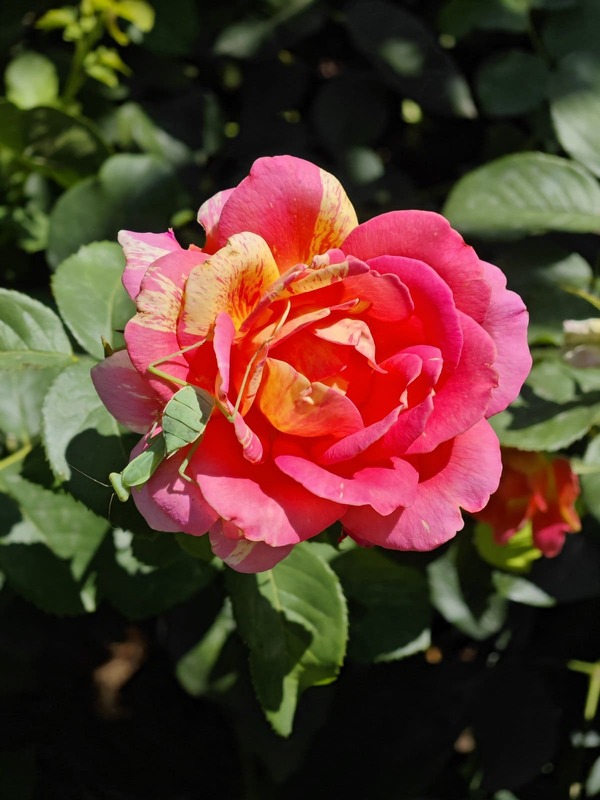
Millipedes-Drupes: The Decomposers
Millipedes, while not insects, play a vital role in the garden ecosystem by breaking down organic matter. They help decompose dead plant material, enriching the soil with nutrients that benefit your roses. Maintaining a healthy layer of mulch and compost can attract millipedes to your garden.
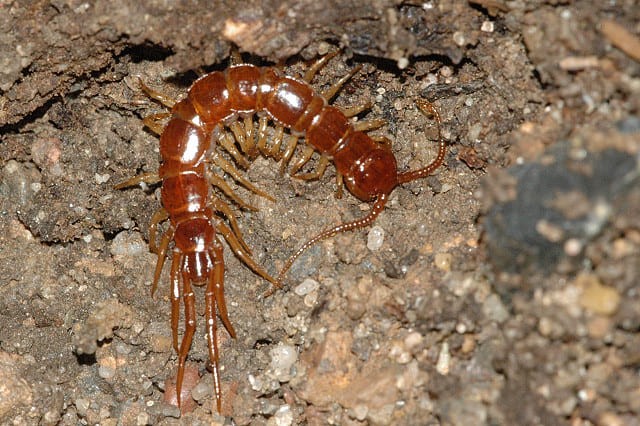
Spiders: The Silent Guardians
Though often feared, spiders are incredibly beneficial for controlling insect populations. They trap and consume a variety of pests, including aphids, flies, and moths. Spiders thrive in diverse habitats, so planting various plants and avoiding excessive pesticide use can encourage their presence.

Phytoseiulus Mites: The Mite Managers
Phytoseiulus mites are predatory mites that feed on harmful plant-eating mites. They are particularly effective in controlling spider mites, which can damage rose plants. Introducing Phytoseiulus mites into your garden can be a natural way to manage mite populations without chemical treatments.

Creating a thriving rose garden isn’t just about planting roses but cultivating an entire ecosystem. By welcoming beneficial insects like parasitic wasps, tachinid flies, hoverflies, lacewings, beetles, dragonflies, praying mantises, millipedes, spiders, Phytoseiulus mites, bees, and butterflies, you can naturally protect your roses from pests and ensure they flourish. These tiny allies work tirelessly, often unseen, to maintain the delicate balance of the garden, allowing you to enjoy the beauty and fragrance of your roses for years to come.



